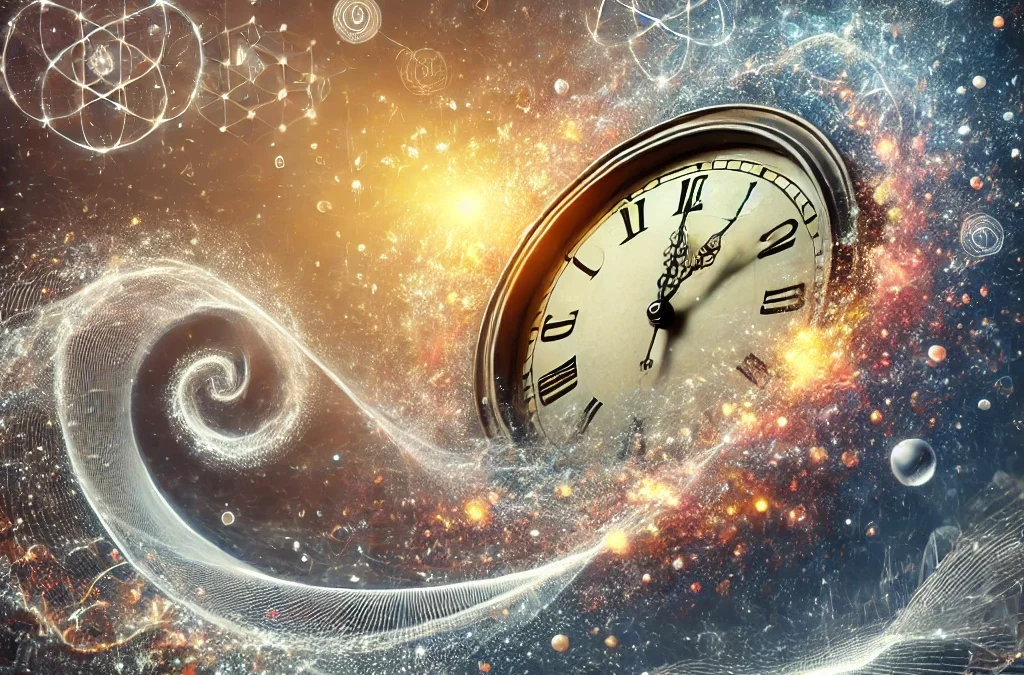Debate: Does Time Exist?
The question of whether time exists has been a central topic in philosophy, physics, and metaphysics for centuries. Below are arguments for and against the existence of time, examining the concept from both scientific and philosophical perspectives.
Position 1: Time Exists
Scientific Perspective
- Time as a Dimension:
- In Einstein’s Theory of Relativity, time is treated as the fourth dimension in the fabric of spacetime, intertwined with space. Events in the universe are described using coordinates of space and time, making time an essential aspect of physical reality.
- Relativity shows that time is not absolute but relative—its passage depends on the observer’s velocity and gravitational field, which adds credibility to the idea of time as a measurable entity.
- Causality and Change:
- Time is necessary to explain cause and effect. Events unfold in sequence—one thing happens because something else happened before it. Without time, causality would be impossible to understand or define.
- Observations of entropy (the second law of thermodynamics) suggest that time has a direction: the “arrow of time,” where systems move from lower to higher entropy, provides evidence for time’s existence.
Philosophical Perspective
- Human Experience:
- Time is a fundamental aspect of human experience. We perceive its passage through aging, memory, and change. While subjective, this universal experience lends credence to time’s existence as a real phenomenon.
- Mathematical and Practical Utility:
- Time is essential for practical applications, from planning daily activities to coordinating global systems like GPS, which require precise time measurements. Its functionality in human society supports its existence.
Position 2: Time Is an Illusion
Scientific Perspective
- Quantum Mechanics Challenges Time:
- Some interpretations of quantum mechanics, such as the timeless Wheeler-DeWitt equation, suggest that the universe at a fundamental level may not require time. Quantum systems are described in terms of probabilities and states, not sequential events.
- Emergent Phenomenon:
- Modern physics proposes that time might be an emergent property, arising from more fundamental processes. For example, loop quantum gravity theorizes that spacetime, and thus time, is not continuous but granular, existing only at a macroscopic scale.
- Eternalism vs. Presentism:
- The philosophical theory of eternalism posits that all moments (past, present, and future) exist simultaneously, challenging our conventional understanding of time as linear. This view aligns with relativity, where time is flexible and not absolute.
Philosophical Perspective
- Time Is a Human Construct:
- Philosophers like Immanuel Kant argue that time is not an external reality but a framework imposed by the human mind to make sense of experiences. It helps us organize perceptions, but it doesn’t exist independently of us.
- Memory and Anticipation:
- The experience of time might be a product of memory (our recollection of past events) and anticipation (our projection of future events). Without consciousness, there may be no passage of time—just a static existence.
- Illusion of Change:
- In metaphysical discussions, time may be an illusion masking a deeper reality. For instance, the block universe theory suggests that the universe is unchanging, with all moments coexisting simultaneously. Time, in this view, is merely a way we perceive the static whole.
Middle Ground: A Relational Perspective
- Relational Time:
- Some argue that time exists only as a measure of change. Without objects or events to measure against, time itself may not have meaning. This view combines elements of both positions, suggesting that time is dependent on the relationships between things rather than existing as a standalone entity.
Conclusion
The debate over whether time exists is deeply tied to our understanding of reality. From a scientific standpoint, time is a measurable dimension with observable effects, but it may be emergent rather than fundamental. Philosophically, time could be a construct, a useful illusion that helps us navigate life but lacks an independent existence.
Ultimately, the question reflects the complexity of human perception and the nature of the universe—whether time is real or illusory depends on the lens through which we view reality.

